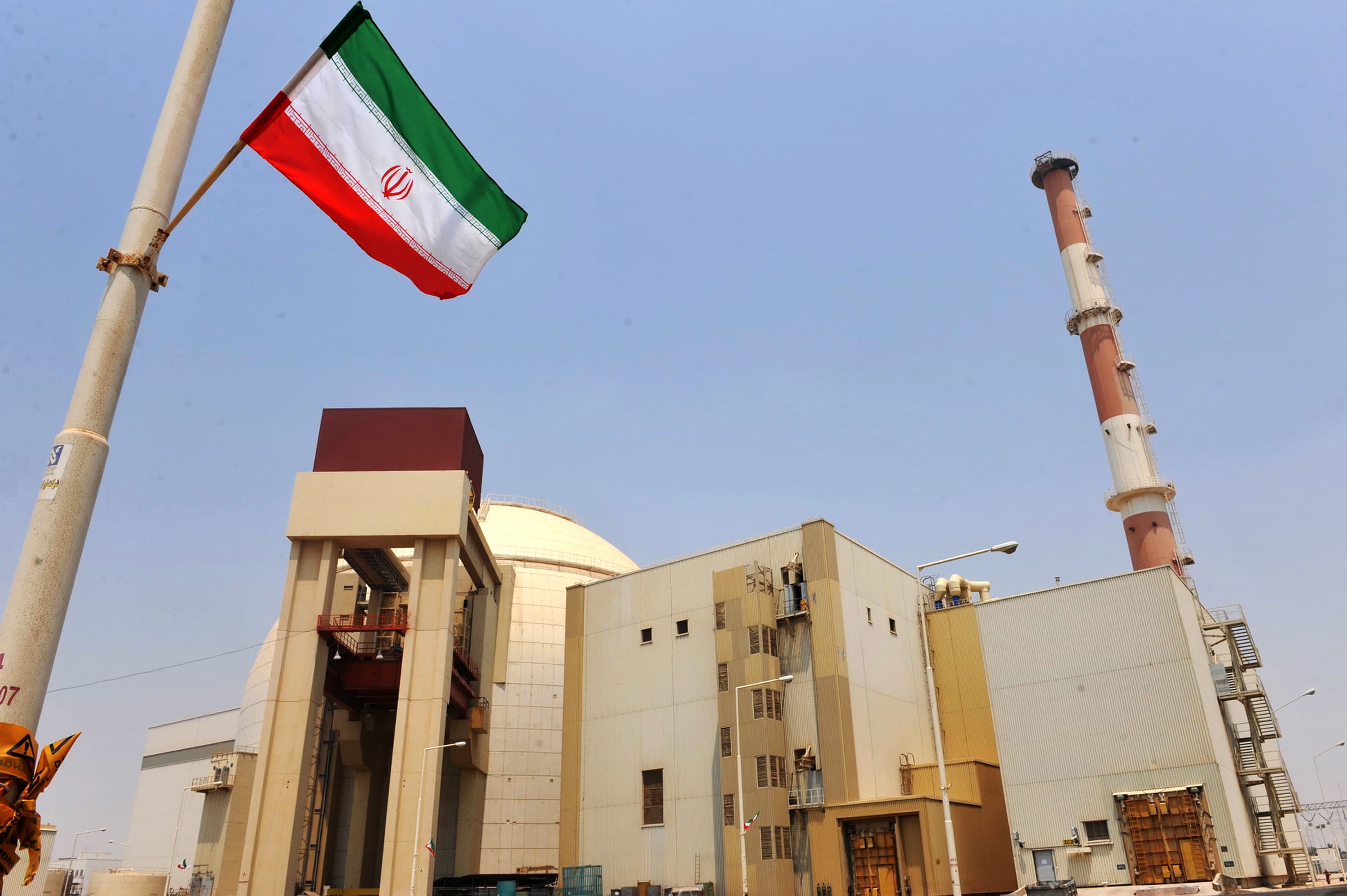
This handout image supplied by the IIPA (Iran International Photo Agency) shows a view of the reactor building at the Russian-built Bushehr nuclear power plant as the first fuel is loaded, on August 21, 2010 in Bushehr, southern Iran.
Getty Images
WASHINGTON — A top Iranian nuclear scientist has been assassinated, according to Iran’s Foreign Ministry.
Mohsen Fakhrizadeh, dubbed the “father of the Iranian bomb,” died from his injuries after armed assassins fired upon his car, according to reports by Iranian media that have not been independently confirmed by NBC News.
State media shared photographs of a black Nissan sedan with multiple bullet holes through the windshield and bloodshed on the road next to the car door. No group has immediately claimed responsibility for Friday’s attack.
Iranian Foreign Minister Javad Zarif condemned the killing and alleged “serious indications” of Israeli involvement.
Fakhrizadeh’s death comes just days before the 10-year anniversary of the killing of Iranian nuclear scientist Majid Shahriari, which Iran also blamed on Israel.
The Embassy of Israel in Washington, D.C., did not immediately respond to CNBC’s request for comment.
The Pentagon declined to comment. The Department of State and the National Security Council did not immediately respond to CNBC’s request for comment. President Donald Trump did, however, retweet a news article and commentary about Fakhrizadeh’s death.
Little is known about Fakhrizadeh, a high-ranking Islamic Revolutionary Guard Corps officer, long viewed as Iran’s top nuclear scientist overseeing the regime’s secret weapons programs.
In 2018, Israeli Prime Minister Benajmin Netanyahu accused Iran of continuing to develop nuclear weapons and said Fakhrizadeh was working within Iran’s Defence Ministry on “special projects”.
“Remember that name, Fakhrizadeh,” Netanyahu said at the time.
The standoff with Iran
Iranian President Hassan Rouhani makes a speech during a ceremony in Tehran, Iran on January 10, 2019.
Anadolu Agency | Anadolu Agency | Getty Images
Fakhrizadeh’s death is expected to escalate tensions between Iran and the United States, which have soared under the Trump administration following Washington’s exit from the landmark Iran nuclear agreement.
The 2015 Joint Comprehensive Plan of Action, or JCPOA accord, brokered by the Obama administration, lifted sanctions on Iran that had crippled its economy and cut its oil exports roughly in half. In exchange for sanctions relief, Iran accepted limits on its nuclear program until the terms expire in 2025.
In 2018, the Trump administration withdrew the United States from the JCPOA. Trump called the JCPOA the “worst deal ever.”
Trump has previously said that he wants to reach a broader deal with Iran that puts stricter limits on its nuclear and ballistic missile work and suppresses the regime’s role in regional proxy wars. Tehran has refused to negotiate while U.S. sanctions remain in place.
In October, the United States unilaterally reimposed U.N. sanctions on Tehran through a snapback process, which other U.N. Security Council members have previously said Washington does not have the authority to execute because it withdrew from the nuclear deal in 2018.
Earlier this year, a U.S. strike that killed Iran’s top military commander led the regime to further scale back compliance with the international nuclear pact. In January, Iran said it would no longer limit its uranium enrichment capacity or nuclear research.
Iranian mourners gather during the final stage of funeral processions for slain top general Qasem Soleimani, in his hometown Kerman on January 7, 2020.
Atta Kenare | AFP | Getty Images




